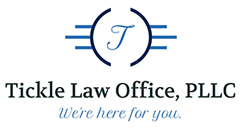Sobriety checkpoints are law enforcement checkmarks at specific stopping points on a roadway. These stopping points help remove drivers who are driving under the influence from the roads. Many people feel these checkpoints are not effective since officers must announce them prior to setting them up.
The goal of sobriety checkpoints is not to arrest a bunch of people. It is to help make people in the area aware that law enforcement is watching and wants to take drunk drivers off the roads.
Makes people think twice
When officers announce a sobriety checkpoint, it makes many people think twice before getting behind the wheel after drinking. Instead, they may set up plans for a sober driver or make other arrangements. It also may make others think about the possibility of an arrest if they drive drunk in the future.
Address problem areas
Law enforcement sets up sobriety checkpoints in areas where drunk driving is a problem. They are always highly visible, so drivers know what they are.
As people pull up to the checkpoint, officers may stop them, but not every car will have to pull over. If an officer pulls over a driver, he or she will have to provide a driver’s license, vehicle registration and proof of insurance.
The officer will then ask questions, such as whether the person has had anything to drink and if so, how much. The driver may have to take a breath test if the officer suspects he or she is driving under the influence.
Sobriety checkpoints may not result in a lot of arrests, and some people always think they are worthless. However, they do serve a purpose and can be effective at reducing drunk drivers on the roads.

